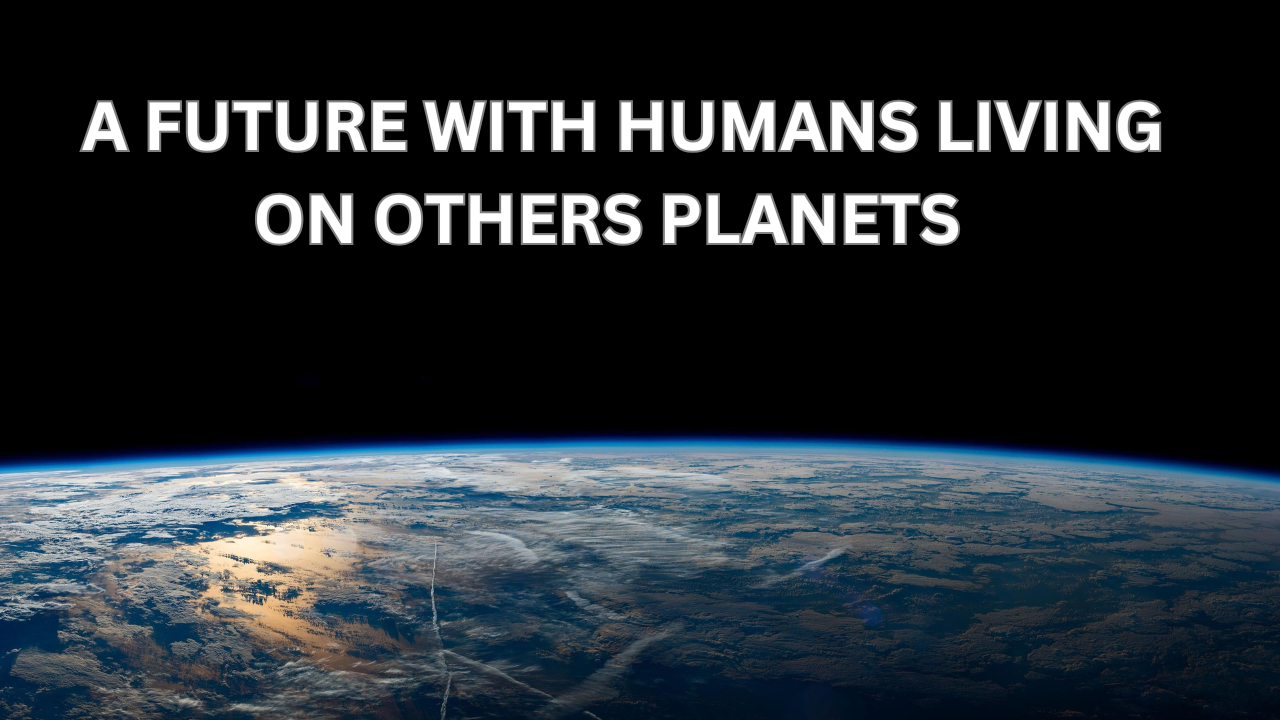The idea of humans living on other planets is no longer just a dream confined to science fiction with advancements in technology and space exploration the possibility of creating sustainable human habitats beyond Earth is becoming more tangible as we face challenges like climate change overpopulation, and resource depletion colonizing other planets may offer a solution to ensuring the survival and prosperity of the human race scientists are working tirelessly to explore the potential of Mars the Moon, and even the distant moons of Jupiter and Saturn as future homes for humanity.
These endeavors are not without their hurdle the challenges of creating livable environments developing reliable transportation and ensuring the health and well-being of humans in space are immense the drive to expand our reach beyond Earth is fueled by our innate curiosity and desire to secure a future for generations to come in this rapidly evolving field the future of space exploration holds the potential for breakthroughs that could reshape human existence as we know it offering a new frontier for life beyond our home planet.
Motivation for Space Colonization:
The motivation for space colonization stems from a combination of survival instincts scientific curiosity and the unrelenting human desire to explore and innovate as our population grows and Earth’s resources become increasingly strained colonizing other planets offers a potential solution to the problems facing humanity climate change overpopulation and environmental degradation are pressing challenges and finding new frontiers for human settlement could alleviate some of the pressure on Earth.
The idea of venturing beyond our home planet taps into our innate curiosity to understand the universe discover new worlds, and push the boundaries of what is possible space colonization also holds the promise of scientific advancements from the development of new technologies to the discovery of resources that could help sustain life on Earth space exploration could foster global collaboration uniting humanity toward a common goal that transcends borders and divisions in essence the motivation for space colonization is not just about securing a new home for our species.
Potential Planets for Colonization:
The search for potential planets for human colonization has captured the imagination of scientists visionaries and explorers alike with earth’s resources dwindling and our population steadily increasing humanity is faced with the pressing need to explore the stars scientists have identified several planets and moons within our solar system and beyond that could potentially sustain life mars often referred to as earth twin stands as the most promising candidate due to its proximity and similarities in day length and seasonal cycles although its atmosphere is thin and inhospitable technological advancements in terraforming habitat construction and resource utilization could make Mars a feasible option.
Beyond Mars, moons like Europa one of Jupiter’s satellites, and Enceladus a moon of Saturn have intrigued scientists with evidence of subsurface oceans, which could harbor microbial life or provide the water needed for human settlement exoplanets in the habitable zone of distant stars such as have also emerged as tantalizing targets while the challenges of interstellar travel the harsh realities of space environments and the long-term sustainability of human life in space are immense the pursuit of these planets for colonization offers the potential to secure humanity future expand our understanding of the universe and perhaps discover new forms of life beyond Earth.
Establishing a Sustainable Human Presence:
Establishing a sustainable human presence on another planet or celestial body is one of the most ambitious endeavors humanity could undertake to ensure long-term survival and thriving it is crucial to develop self-sufficient ecosystems that can support human life far beyond Earth this means creating closed-loop systems where everything from food to water is recycled and regenerated reducing reliance on Earth for resources advanced technologies will be essential to harness local resources such as mining the regolith on the moon or mars for building materials and generating energy through solar power or nuclear fusion.
Life support systems must be robust enough to handle the challenges of harsh environments like extreme temperatures radiation and limited atmosphere human health and psychological well-being will also play a significant role requiring advancements in medical care exercise regimens and social dynamics to ensure people can live in isolated confined spaces for extended periods the goal is to create not just a temporary outpost but a thriving self-sustaining community capable of growing and evolving achieving this will require collaboration across governments private companies and international space agencies along with continuous innovation in science engineering and human adaptation.
Scientific Discovery:
Scientific discovery is the cornerstone of human progress, driving innovation and expanding our understanding of the world and the universe it begins with curiosity the fundamental desire to question the is fueled by rigorous exploration and experimentation from unraveling the mysteries of quantum mechanics to mapping the human genome scientific discoveries have led to breakthroughs that transform societies enhance the quality of life and solve global challenges these discoveries often arise from an interplay of theory observation and technology as new tools and methodologies open up previously uncharted territories
which leads to deeper insights what makes scientific discovery so powerful is its capacity to change perspectives challenging previously held beliefs and expanding the boundaries of what we know to be possible it is not just about the pursuit of knowledge for knowledge’s sake but about applying that knowledge to address the needs of humanity whether it in medicine energy environmental conservation or space exploration as we continue to push the limits of human understanding scientific discovery promises to unveil new frontiers offering solutions to complex problems and inspiring future generations to innovate and explore.
